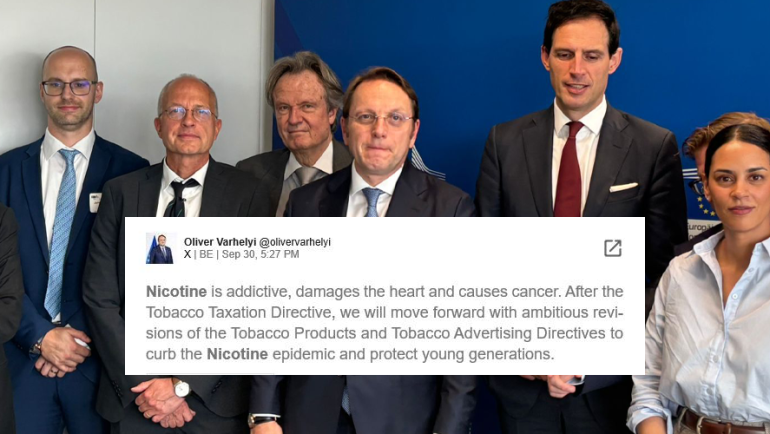It’s not considered good practice to make new laws at 4am on no sleep: but that’s how the Tobacco Products Directive – which regulates vapes across the EU – was agreed more than a decade ago.
In those frantic, last-minute negotiations between EU countries and the European Parliament, a new clause was added at the behest of the European Commission and almost as an afterthought. No one has really discussed it since, but it could be about to bite back hard.
The clause says that where three Member States ban a particular kind of e-cigarette, the Commission can then extend that ban across the EU using a little known and highly opaque process. Were they to decide to do this, a ban could be agreed in a few short weeks.
Fast forward to today. The French National Assembly has passed a bill awaiting the signature of President Macron, and aim to have a ban in place by September.
Belgium’s Public Health Minister, Franck Vandenbroucke, wants a ban there by 2025. Belgium is on its second attempt to ban disposables: an attempt to do so in 2021 was blocked by the European Commission on a technicality, but assuming the lawyers get it right this time, the Commission is unlikely to stand in the way again.
And the new Centre-right government in Poland is also calling for a disposables ban. Prime Minister Donald Tusk has given a green light for legislative work to begin, and Deputy Health Minister Izabela Leszczyna has called them “ « a plague, » saying: « We will protect especially young people. » There is even talk of an expedited procedure leading to a ban by the end of the year.
That leaves 23 Member States where disposables can remain on the market. But that’s unlikely to last long without urgent political action from users or manufacturers.
Article 20 subparagraph 11 of the TPD allows the Commission to “adopt delegated acts in accordance with Article 27 to extend such a prohibition to all Member States”. In a scenario where disposables are banned in France, Belgium and Poland, that process can happen at lightning speed.
A Delegated Act is an obscure legal instrument that the Commission can use to legislate for anything the EU has given it power for – in this case banning vapes that are already banned in three Member States – with very little process or consultation. And we know that Commission will want to ban any form of safer nicotine product it can: It already tried to ban vaping in 2013, and wants to do the same to nicotine pouches.
First, the Commission will consult so-called expert groups, made up of regulators from all EU Member States, most of whom will be of the prohibitionist variety when it comes to nicotine products. They’ll then produce adopt a Delegated Act, which becomes effective two months later unless Parliament (by a majority) or Council (by a Qualified Majority) objects.
As first reported here, the Commission is behind on its TPD schedule, with a public consultation unlikely until 2025; but this could happen much faster, and with a new Parliament in place, it will be difficult to find MEPs to object unless work starts now.
The elections take place on 6-9 June, and candidates will be looking for your vote before that. We’ve catalogued all the election candidates in our Members section. You can get in touch with them on social media or by email, explaining why the Commission shouldn’t be left alone to simply ban a product that millions rely on to stay away from cigarettes.
Sign up for our members section to get regular updates on this and other core campaigns around safer nicotine.



